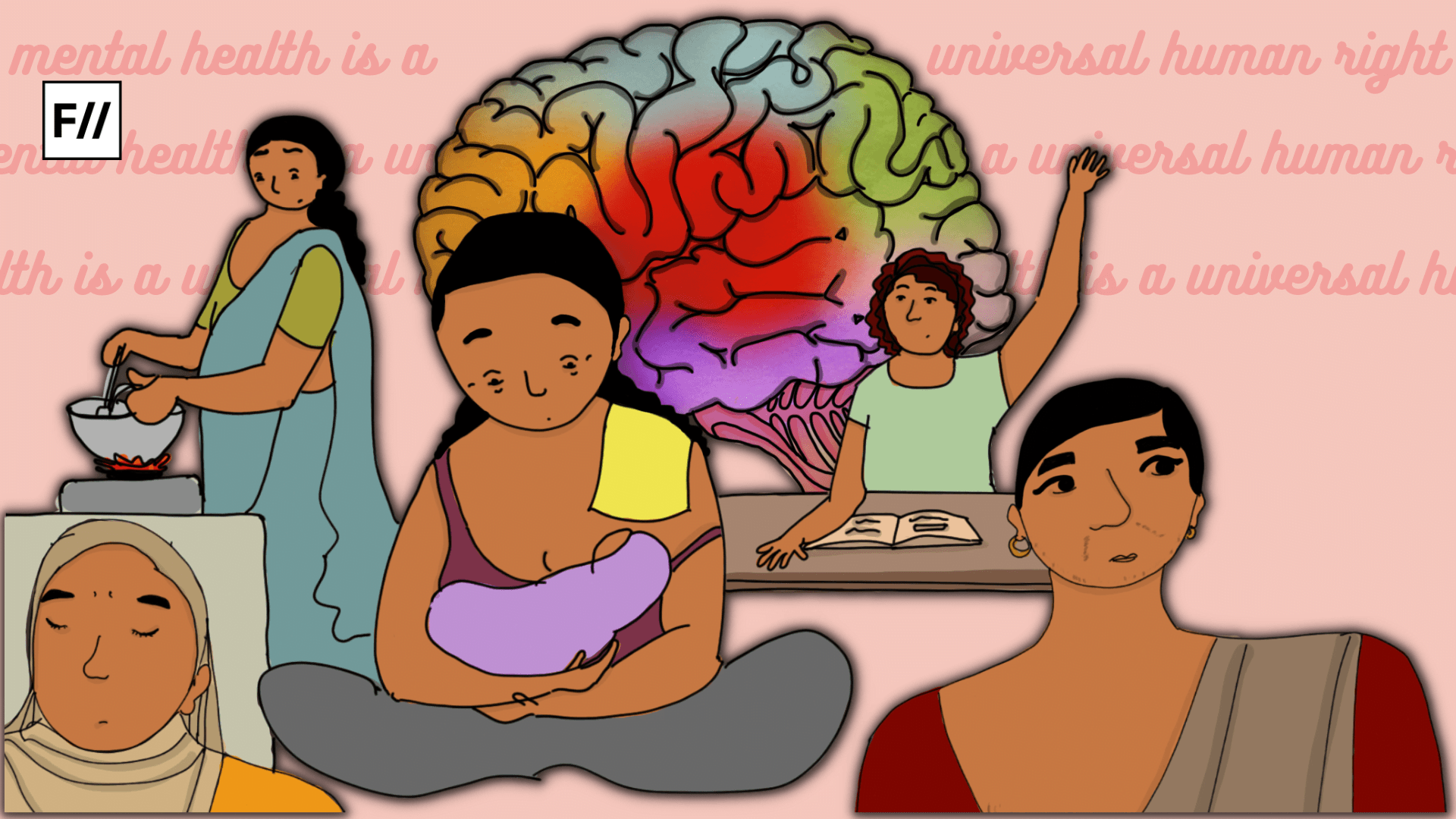‘The capacity to affect and to be affected‘ encompasses the foundational premises of affect theory—a shift that re-centres the body within the political and scholarly discourse. It shifts focus from ‘what is or what we know‘to how we feel, move and reify encounters within the social and political sphere. However, “affect” does not mean emotion or the feelings themselves that we can word and realise. Rather, as said by most of the scholars, affect describes the visceral forces beneath, alongside or generally other than conscious knowing. It is a force of inbetweenness, a preconscious, pre-subjective, relational intensity that passes from body to body.
Thus, in simpler words, affects are forces prior to intentions; these can be considered the bodily sensations one feels before certain emotions are realised. Affect is thus found in these intensities that are registered between perception and action that “stick” between bodies.
Brian Massumi equates affect with intensity, thus allowing for a differentiation between affect and emotion. For him, emotions are personal and limited only to the domain of self, but affect for him is an extra or intersubjective phenomenon.
Affective turn: from language to embodied encounters
Affect theory reinstitutes the idea of feeling back into politics. The late 20th century saw the emergence of a “textual turn“, where language became the focal point of analysis in understanding power and culture. Central to the textual turn is the idea that language is the primary way of understanding the world; thus, largely, engagement with how languages are constructed, used and changed should be fundamental to all scholarly discourse about human nature and social institutions. Thus, as Ludwig Wittgenstein states, the limits of our language are the limits of our world; language was seen as knowledge.
However, coming as a transdisciplinary intellectual shift as a response to the textual turn, the “affective turn” gained prominence. This shift intensified focus on emotions, feelings and affect as means of scholarly enquiry of culture, power and the politics of emotion. This shift argued for the importance of the relational nature of embodied encounters that actively shape subjectivities, culture and systems of power. Affect theory connects the social and scientific and goes beyond language by centring bodily sensations.
By bringing back affect and emotion into political, social, cultural and psychoanalytical discourse, it has allowed to interrogate affect and emotions as a source of truth about the self and its relation with others. This comes at a point where scientific reasoning—detached from emotions and objective observation—was riding high in social science discourse; thus, it led to increasing interest in empirical and theoretical understanding of emotions.
The affective turn thus led to the inquiry into emotions and affect in relation to politics, which became important as it tried to reason as to how power passes through feelings and how politically dominant ways of being and knowingemerge or are produced through affective relations. Affect theory brings the biological, environmental and social experiences essentially into our understanding of the world.
Feminist discourse: emotion, politics and production of knowledge
Feminist scholarship has long considered the relationship between affect, knowledge and power essential to the understanding of the power structure and the dominant societal narratives. These scholars have tried to explore the role of affect in oppression as well as political transformation. The gendered nature of the reason/emotion binary that has existed within the societal structure has actively enabled the exclusion of women from being legitimate sources of knowledge production. Feminist scholars have tried to interrogate this dualism. For centuries, rationality has been understood as being fundamental to understanding and participating in the political sphere—a quality that is in opposition to the qualities that are primarily attributed to femininity and the female body.
For centuries, rationality has been understood as being fundamental to understanding and participating in the political sphere—a quality that is in opposition to the qualities that are primarily attributed to femininity and the female body.
Thus, even before the affective turn, feminist scholars have situated affect and emotion as fundamentally important in understanding the systems of power and critiquing the rigid objectivity of knowledge production.

The objective knowledge that is isolated from the embodied encounters and environment is critiqued for being too detached from the lived experiences of the people that should be central to the production of knowledge. The feminist scholars believed that exploring the politics of affect can also enable different and potentially transformative ways of knowing.
Scholars like Audre Lorde argued that the work of oppression is often carried out at an affective level. Another scholar, Megan Boler, has traced that the hierarchical structure existing within the society on different levels—gender, race and class—is maintained through the emotional rules created by the patriarchal culture which we ingrained and internalise. This framework has been carried forward by other theorists like Sara Ahmed to understand how power works through affect to shape individual and social bodies.
Sarah Ahmed and the promise of happiness
Sara Ahmed, one of the most important proponents of affect theory in the 21st century, has highlighted that our emotions can attach to us the very condition of our subordination. According to her, even in the face of a collective resisting force, social transformation is difficult to achieve due to the strength of our affective attachments to social norms. While in political and social discourse, exclusion of women had been enabled through the gendered binary of feelings and rationality, it had also led to the exclusion of the study of feelings and its importance in the production of dominant social and political hierarchies due to feelings being considered feminine traits.
Sara Ahmed, in her work The Promise of Happiness, actively challenges the idea of happiness as inherently good or politically neutral.
Sara Ahmed, in her work The Promise of Happiness, actively challenges the idea of happiness as inherently good or politically neutral. This means that even happiness is culturally conditioned, and so is how we think about it. According to Sarah, negative emotions, like unhappiness, do not necessarily mean failure. Rather than acting as a response to social injury, they are generative. These negative emotions can become collective affective registers, pointing out what needs to be changed. The central concept in her book is ‘affect alien‘, someone who feels an alienation when they feel ‘a gap between the promise of happiness and how they are affected by objects that promise happiness‘.
Being an ‘affect alien‘ thus means being out of sync with the dominant emotional structures. Feminist Killjoy for ‘ruining the fun‘ and the unhappy queer who doesn’t fit into the happy heteronormative family structures, in this sense, become the ‘affect alien‘. The idea of feeling at odds with the world, or feeling that the world is odd, is how Sarah tries to argue that the societal structures are deeply political.
Commercialisation of emotions and individualisation of structural pain
Arlie Hochschild in her text ‘The Managed Heart: Commercialisation of Human Feeling‘ has highlighted how emotions are managed in both private and public spheres and that this emotion work has been commercialised as ‘emotional labour‘. This allowed for a groundbreaking analysis of how capitalism disciplines emotions, more profoundly through gendered, sexualised and racialised dynamics. This work has contributed to understanding the social construction of emotions and allowed later theorists to further connect emotions with global capitalism and neoliberalism, where individual emotional subjectivity is shaped by the neoliberal governance to aid their own power dynamics.
Megan Boler has argued that emotions are not only personal experiences, but they are deeply political and can become the site of control. But she further reiterated that emotions are also potentially subversive, a site of political resistance and can enable the mobilisation of liberation movements. Personal has been salient to the feminist discourse encouraging the inclusion of local positionalities in the theoretical framework. However, scholars like Ann Cvetkovich and Lauren Berlant have also raised concerns regarding the individualisation of structural problems. This means that even though affect and healing are powerful tools of understanding the power structures and resisting the oppression, this emphasis on the personal can lead to the framing of personal solutions for problems that are structural in nature.
About the author(s)
Reeba Khan is a Political Science student at Delhi University. As a writer and student journalist, she has a keen interest in issues of identity, conflict, and politics of belonging. She writes to remember and to resist







